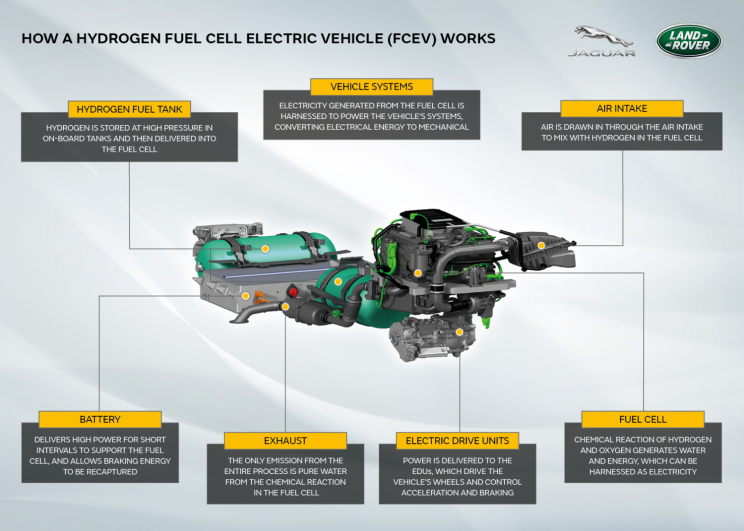With water emission as the only by-product, hydrogen cell combines hydrogen and oxygen producing electricity and power a vehicle. Jaguar explains that the hydrogen cells are ideal for larger and longer-range vehicles as fuel cells enable rapid refueling and have high energy density. These vehicles perform well in cold environments, since they show minimal loss of range in low temperatures as they are being powered by fuel cells. The whole project of developing a clean energy vehicle is named as “Project Zeus”. Partly funded by the UK government-backed Advanced Propulsion Center, the initiative will give Jaguar’s engineers the information they need to be able to optimize a hydrogen powertrain. The hope is to develop fuel cell vehicles that can deliver the same performance and capability when it comes to range, off-road ability and even towing as their conventional counterparts. Jaguar also plans to reach net zero carbon emissions across its supply chain, products and operations by 2039 along with zero tailpipe emissions by 2036. Both goals are part of its “Reimagine” strategy announced back in February when the automaker revealed that it will only build all-electric cars starting in 2025. Ralph Clague, Head of Hydrogen and Fuel Cells for Jaguar Land Rover, said in a statement: “We know hydrogen has a role to play in the future powertrain mix across the whole transport industry, and alongside battery electric vehicles, it offers another zero tailpipe emission solution for the specific capabilities and requirements of Jaguar Land Rover’s world class line-up of vehicles. The work done alongside our partners in Project Zeus will help us on our journey to become a net zero carbon business by 2039, as we prepare for the next generation of zero tailpipe emissions vehicles.” Also Read: Internal Combustion Engine into Electric Vehicles
